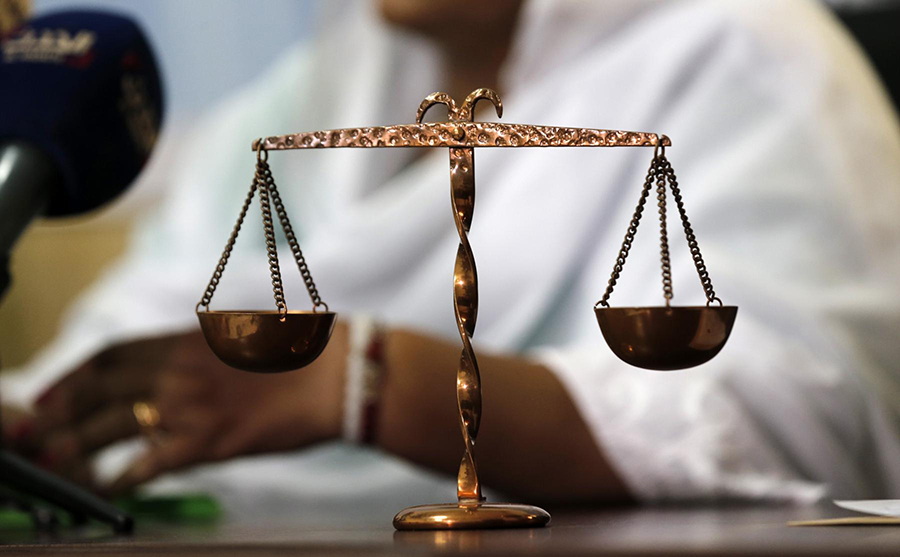My understanding of the subject Government is that there are basically three arms of government – Executive, Legislative and Judiciary. Though the judiciary is always referred to as the third arm of government, their role in the administration of justice is revered when it comes to maintaining the stability of society.
A major objective of the judiciary is to defend and uphold the constitution towards ensuring that the rule of law prevails at all times. I believe this should be in a timely manner to protect citizens and those who feel that they have been wronged. Invariably, trying to protect those, who from the point of view of the law, seem weak from those who are perceived to be stronger.
As a Jew-man, when it applies to matters concerning the judicial system, my thought would be to have a system where matters that are deemed urgent are incorporated into a process within the judicial system, such that judges can access them quickly, preferably remotely in order to ascertain in their opinion that such matters warrant the level of urgency as filed in the application to the court. Such prompt opinions enable advocates and solicitors better understand if such applications are deemed urgent and are fast-tracked to determine such urgency, thereby creating increased value and reduced costs of litigations by reducing turnaround time.
READ ALSO: SEC opposes Oando’s plan to join suit filed by its top executives
Having observed and been a victim of issues of urgency, where it seems that the resources of the individual and/or state are either being wasted and/or stolen as a result of a delay in reviewing the level of urgency of a particular legal position, then our people are only going to believe that “Justice delayed is Justice Denied”.
Several reasons abound for these delays. Of high significance is the general system for filing applications within our judicial system. Though some courts have improved with the introduction of technology, many courts are still saddled with paper-based filing systems. Though these applications are properly logged and assigned a case number, many have no footnotes to the fact that they are matters of urgency and should be looked into with an opinion provided within a specified time for advocates and solicitors to work more efficiently for their clients.

READ ALSO: Andela partners Facebook, UNODC to host Hackathon4Justice
Another critical gap within the system and please correct me if I am wrong is the fact that we do not have enough legal minds working within the ambits of the office of a judge to provide briefs and opinions with respect to a lot of the matters which relate to urgency and otherwise. I believe that this could help the judges get high-level briefs on which they could easily make high-level decisions as to whether the urgency is warranted. This would provide the appropriate grounds on which such cases will be listened to and preparing advocates and solicitors for their defence/prosecution.
So, the noun ‘urgency’ which is used to define something of importance requiring swift action should be treated as such by the judiciary community. This is necessary because the cost of the delay in treating applications urgently many times outweigh the benefits whenever justice is finally served. For example, we have seen the many challenges with conducting elections in some states as part of the standard timetable for electioneering activities in our country. These have come about because of the theory of “Justice delayed, is not Just denied”.
READ MORE: Nigerian firms risk delisting over failure to file annual returns – CAC
However, when justice is finally served, have we asked those who were deemed not be the rightful owners of the authority to return the cost incurred during their alleged illegitimate period of authority? Where organizations have declared bankruptcy and those who were responsible have passed on from the land of the living before justice is delivered, how do we bring back such organizations and compensate those who lost their livelihood from the delay in justice?
As an advocate of good governance and the rule of law, we as a people must start asking questions of ourselves and the judiciary, especially where there is continued advocacy for judicial reforms – what type of reforms are required? I agree that the autonomy of the judiciary cannot be compromised, however, the judicial system must step up and create more opportunities for those who will help the judges efficiently and effectively achieve their objectives of delivering judgmental opinions that would help those who rely on them to believe that “Justice delayed, is not justice denied”.
READ MORE: Lagosians groan as criminals terrorise neighbourhoods during Covid-19 lockdown
In conclusion, in reforming the judiciary, in my opinion, the first step is to adopt technology that would drive the ease of doing business within offices of the judicial systems. The second will be to create a registrar depart that can properly provide quick guides to the office of the judges to help them deal with matters of urgency. The last will be for the office of the judges to bring in more legal graduates, who would help prepare them for their many cases. Where we fail to achieve these three things, then we will be left with the other popular saying “JUSTICE DELAYED, IS JUSTICE DENIED”
Written by: Uade Ahimie






















Very educative platform so impressed thanks so much and pls keep it up.